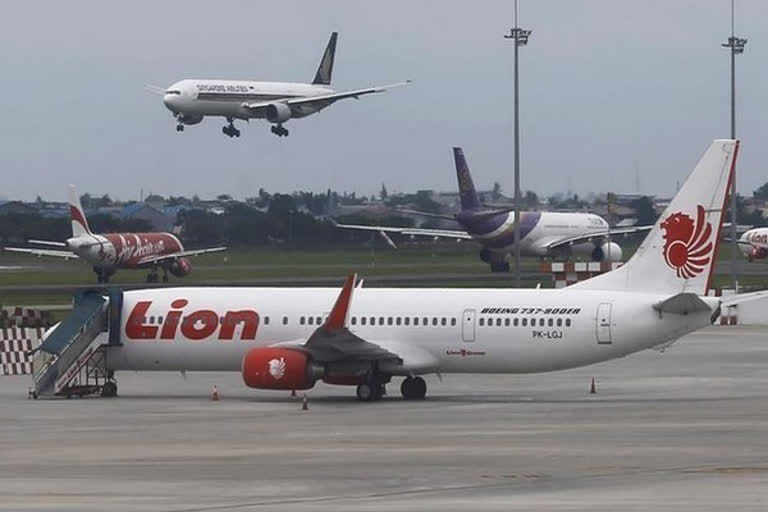Jakarta:Mechanical and design problems with a Boeing flight control system were key factors in the crash of a Lion Air plane last year, Indonesian investigators told victims' families in a briefing Wednesday on their findings.
All 189 passengers and crew were killed when the Boeing 737 MAX slammed into the Java Sea shortly after takeoff from Jakarta last October. Indian national Bhavye Suneja, the pilot of the plane, was also killed in the crash.
A few months later, the model was grounded worldwide after an Ethiopian Airlines 737 MAX crashed, killing 157 people aboard. Preliminary investigations into both accidents implicated the variants.
Manoeuvring Characteristics Augmentation System (MCAS), an automated flight-handling mechanism that pilots were unable to control. Details of a final report on the Lion Air crash expected to be made public this week were shown to grieving relatives at a closed-door meeting in the Indonesian capital.
Read more:7 killed as World War II-era plane crashes in Connecticut
In a slide-show presentation, Indonesia's National Transportation Safety Committee said that their report would include problems with the MCAS as a "contributing factor".
"During the design and certification of the (737 MAX), assumptions were made about the pilot response to malfunctions which, even though consistent with current industry guidelines, turned out to be incorrect," said the presentation, part of which was provided to media.
It added that the system was vulnerable to the sole sensor it relied on for inputs and that a replaced sensor on the doomed Lion Air plane had been "miscalibrated" during an earlier repair.
